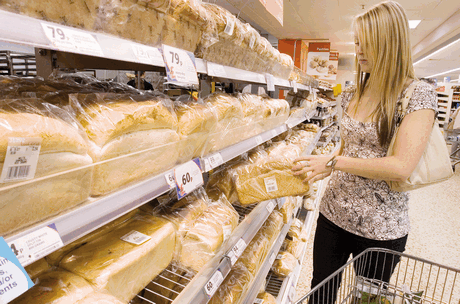Sean Rickard warns of massive rise in food prices from EU-pesticide law

pic SOS campaign and shopping shot (see p21 this week’s issue)
Substantial increases in household food bills will arise, if the European parliament succeeds in pushing through its plans to cut the availability of pesticides for use in agriculture.
That is the key finding of a new report into the impact of the EU’s anti-pesticides legislation, carried out by Sean Rickard, senior lecturer at the Cranfield School of Management in Bedfordshire.
Mr Rickard told Farmers Weekly that, under the European parliament’s most restrictive scenario, which would remove 85% of current pesticides from the market, EU cereals output could drop by about 100m tonnes, leading to an effective doubling in grain prices.

A £100/t increase in wheat and barley would translate into at least 10p on a loaf of bread, 3p on a litre of milk and a 40p/kg increase in the price of pork. “Potato prices would also double,” said Mr Rickard.
“The European parliament’s scenario effectively makes all farming in Europe organic,” he added. “It will affect all sectors to some extent, and we will see food prices increase by hefty margins.”
It could easily put another 10% on the annual rate of food inflation, he suggested. While food was still relatively cheap, for low income families who spend around 30% of their disposable income on food, such cost increases would have a big impact.
The report, which is due for publication next week, notes that, for arable farmers, these price rises would not be enough to make good the drop in yields. And for livestock farmers, the rise in feed costs would certainly lead to loss of income.
“This would force many out of business, and as prices for meat and dairy products rose in response to the reduced supply, so the burden on household food bills would increase.”
The report also points to the wider implications for the UK economy, predicting a deterioration in the food trade deficit of £14bn, as more imports are drawn in and self sufficiency falls.
“Many jobs in wholesaling, processing and manufacturing of food would also be vulnerable to a reduction in domestic production and a switch to imports,” it adds.
It also suggests that a situation of reduced supply and higher prices for vegetables is in direct conflict with the UK government’s healthy eating policy.
“And, according to ADAS experts, in many instances the proposals will force farmers to replace crop protection substances with increased cultivations. The farming industry will increase its dependence on fuel and, with it, its carbon footprint.”

